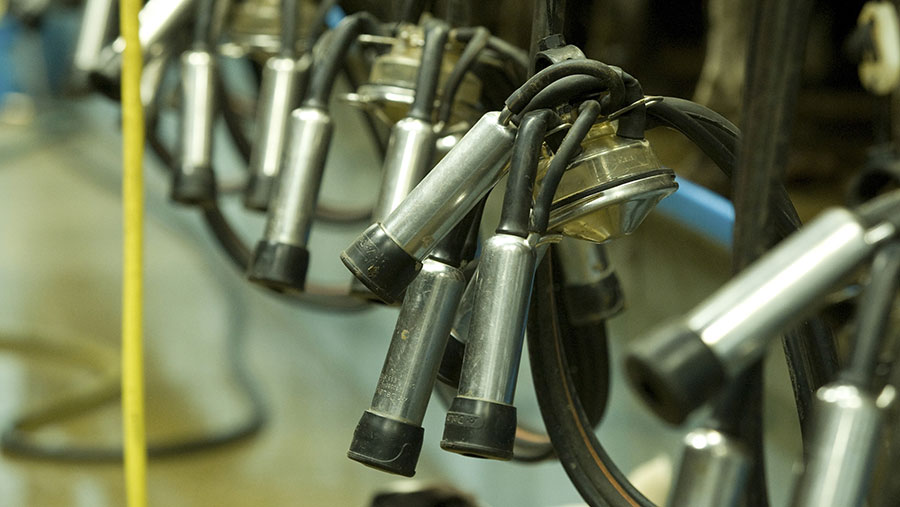Ditch dairy voluntary code and reform contracts, says NFU
 © FLPA/imageBROKER/REX/Shutterstock
© FLPA/imageBROKER/REX/Shutterstock The failure of the voluntary code of practice (VCOP) to deliver any lasting change has left the NFU with no option but to call for milk contract regulation, according its dairy board.
Despite some milk buyers making great strides towards a fairer system, bad practices were still rife in the industry, according to an open letter signed by the NFU’s Michael Oakes, dairy board chairman, Sian Davies, chief dairy adviser and Nina Winter, chief legal adviser.
See also: Muller confirms fixed-price milk contract
The industry could not continue with farmers shouldering all the risk and with buyers making amendments to contracts as and when it suits themselves, the letter said.
This had been evident during recent market crashes which highlighted how some buyers slashed contracts to protect margins, in turn cutting many dairy farm businesses to the bone.
What is the NFU calling for?
Defra has indicated in its recent Command Paper it would seek to adopt the EU Commission’s common market organisation regulation (CMO), a document described by the NFU as “prescriptive” and “inflexible”.
What does the common market organisation regulation say about dairy?
- Contracts should have transparent pricing
- Prices should either be fixed or linked to market signals
- Minimum contract length of six months
- Encourages the creation of producer organisations
- Includes safety net provisions such as skim-milk powder intervention storage
However, the NFU has indicated the CMO could be used as a framework for new regulations, leaving Defra with the option of creating a bespoke set of contractual rules for the dairy industry after the UK leaves the EU.
“We gave the VCOP a good shot but it’s clear some buyers just can’t be trusted to deliver fair contract terms,” said Mr Oakes.
“They continue to use and abuse farmers as a tool to manage their own business risk, so we have no choice but to call for the regulation of dairy contracts.
“We want to see a flexible and innovative regulation that delivers fair terms for farmers and an equitable balancing of risk between farmers and buyers.”
Mr Oakes added that as the UK leaves the EU, the dairy market would not be able to be commercially focused, innovative and competitive if buyers continued to live in the dark ages using unfair contracts to manage risk.
“It’s time for buyers to look to the future, operate as proper commercial businesses and deal with farmers fairly. That’s all we’ve ever wanted on dairy contracts – fair terms,” Mr Oakes said.
